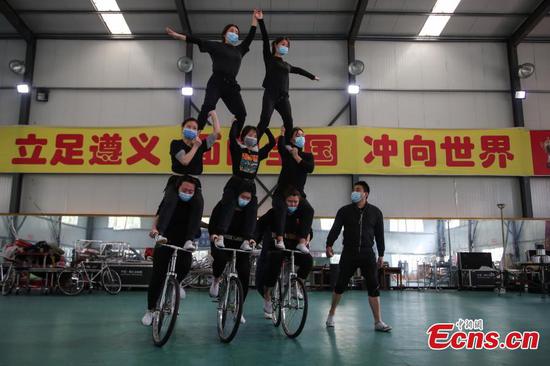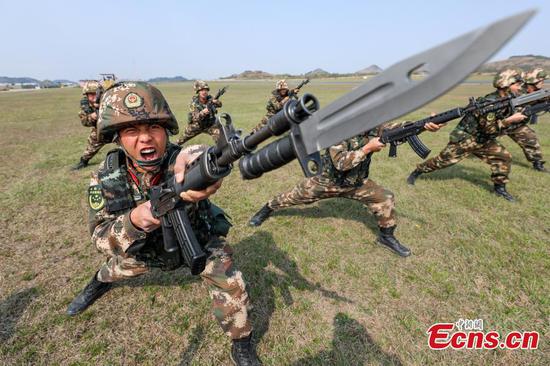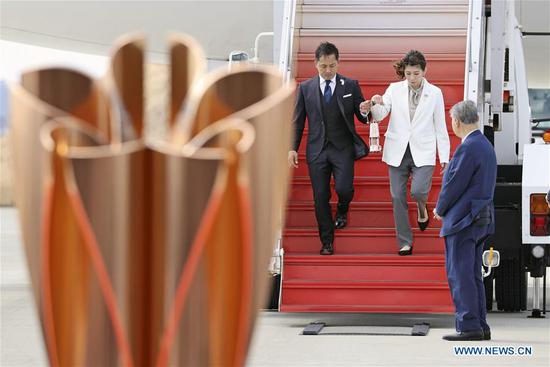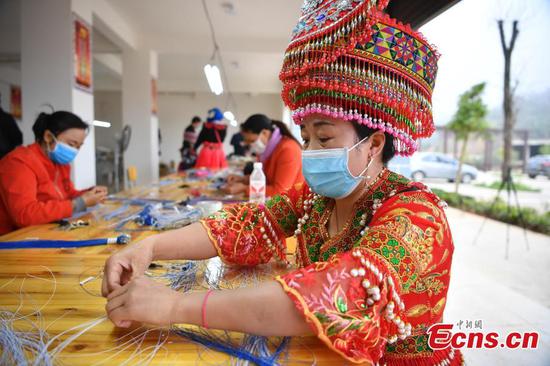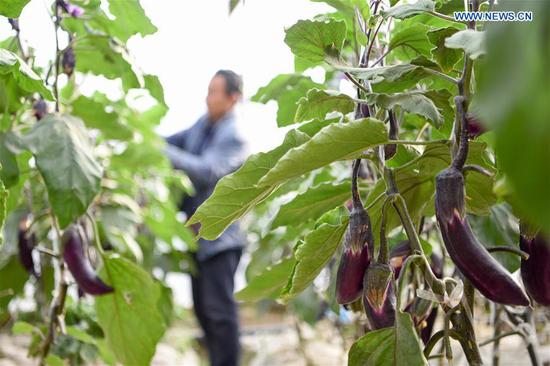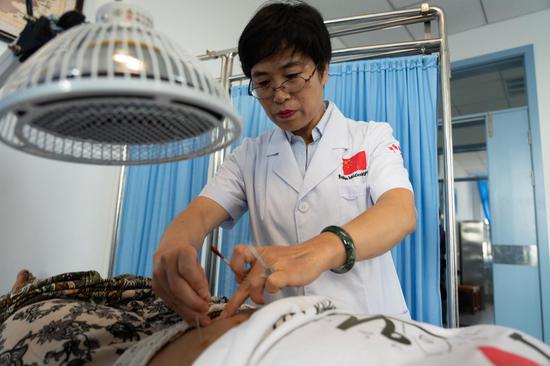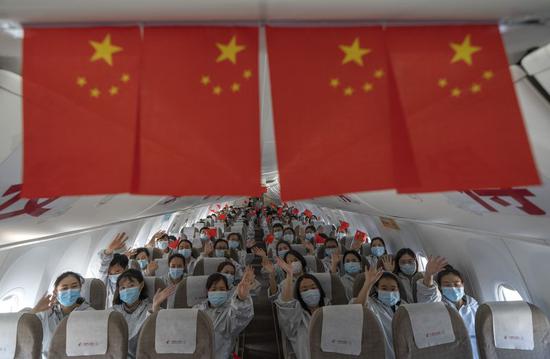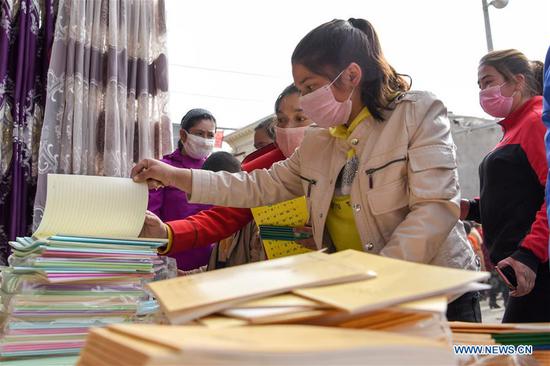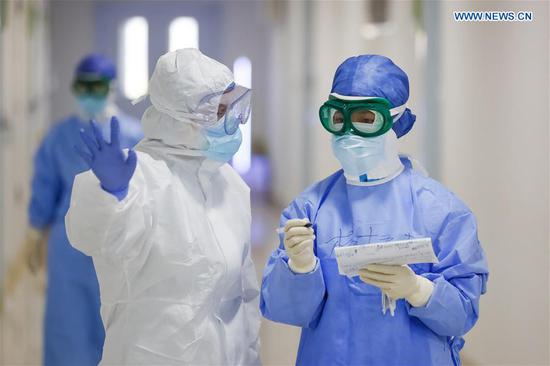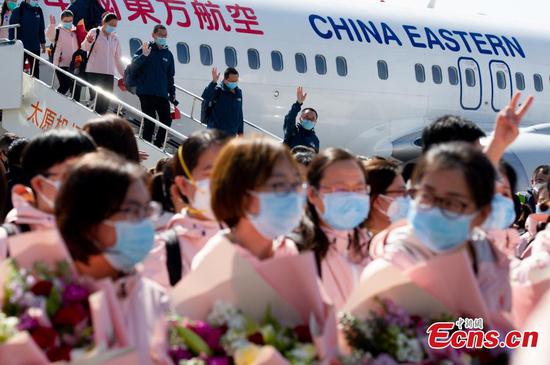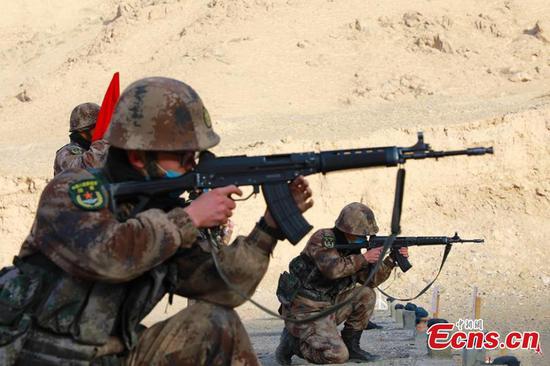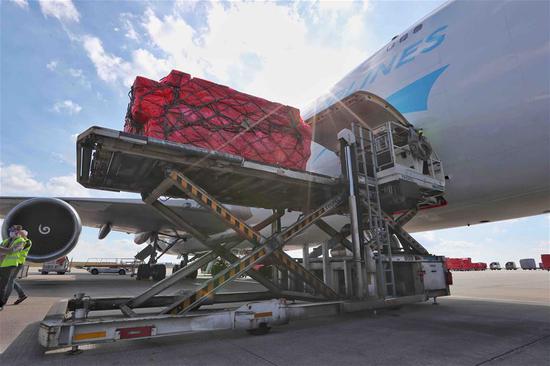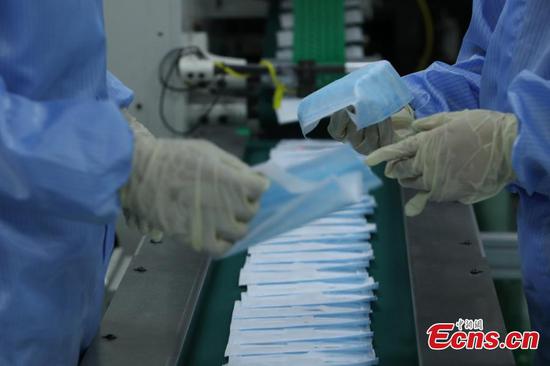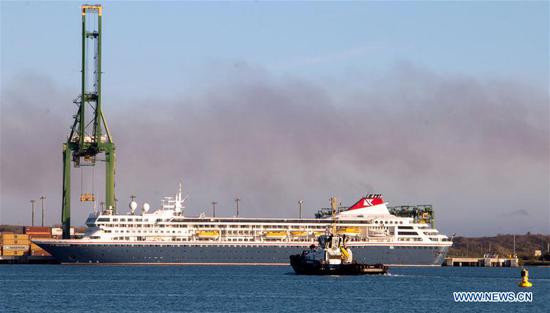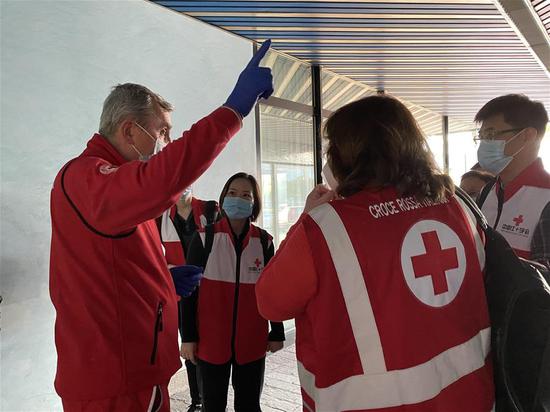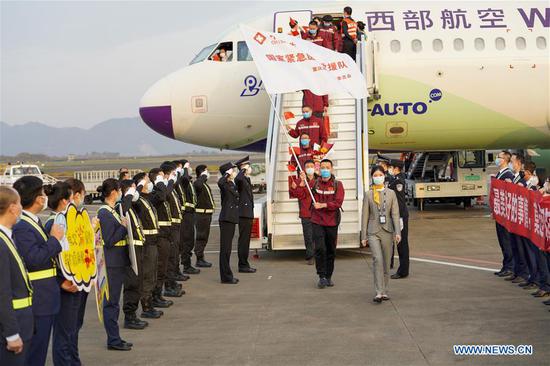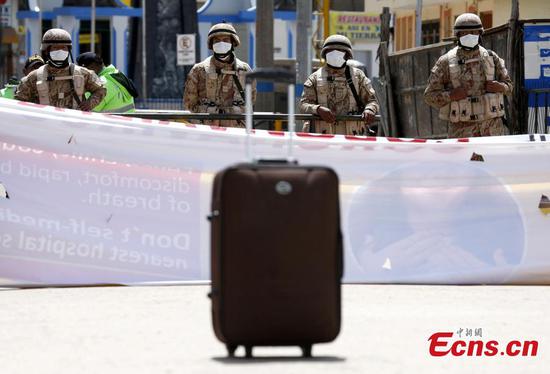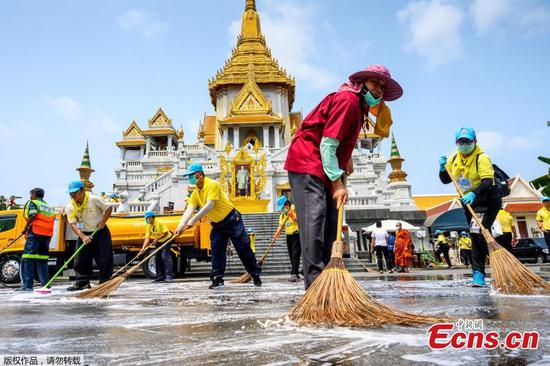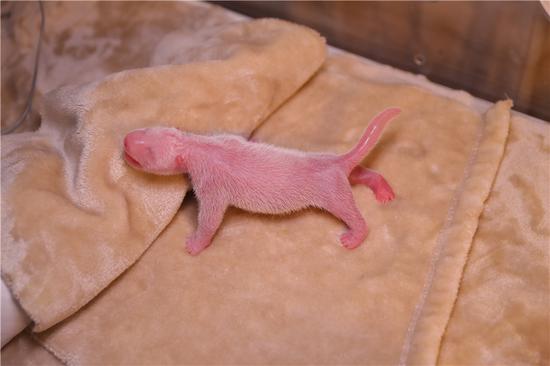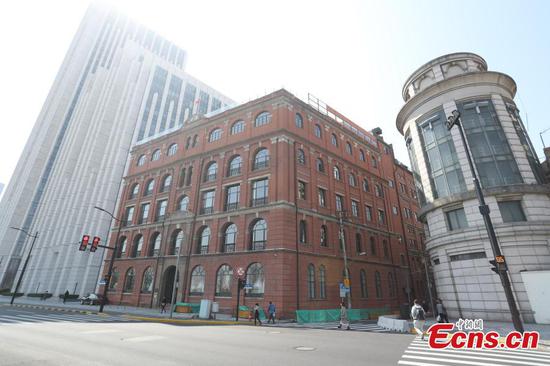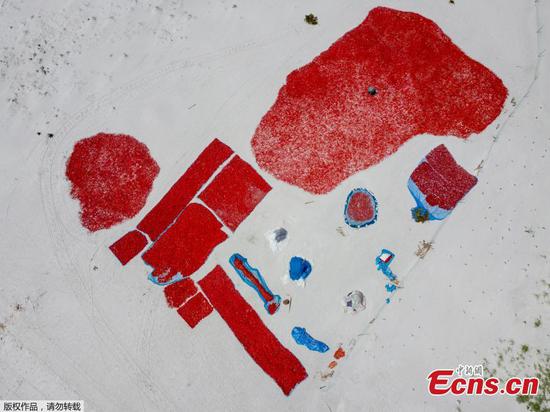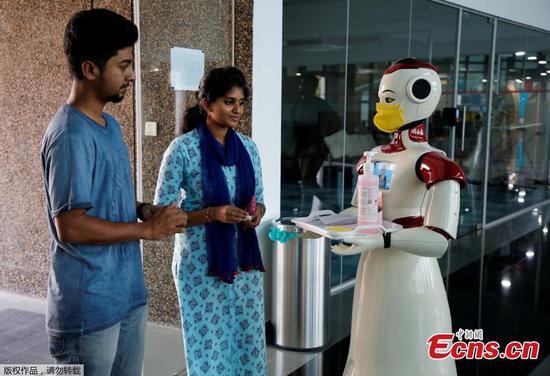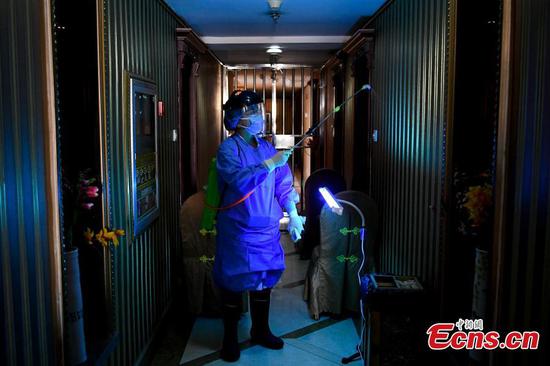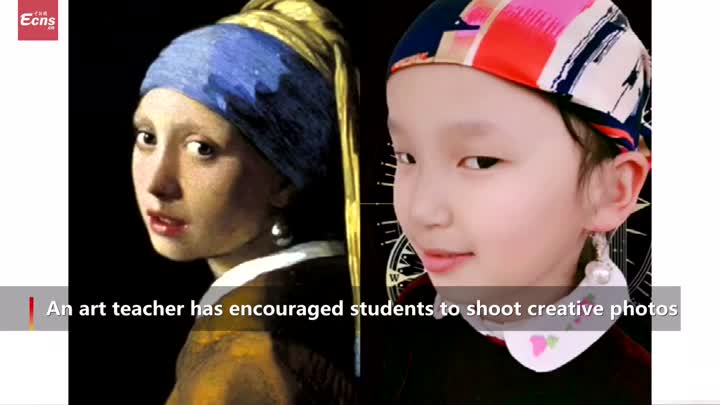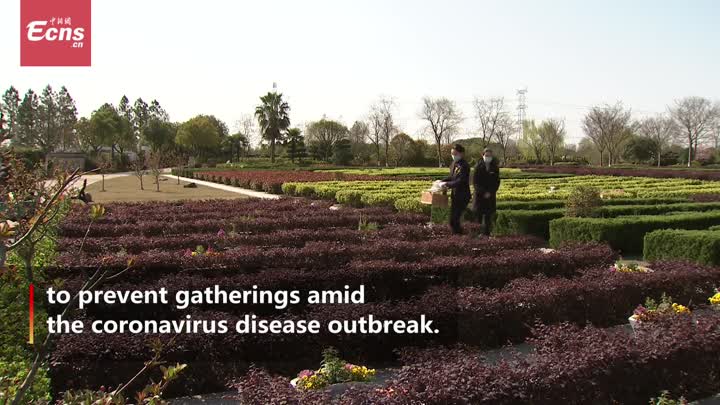Experts say nation's experiences in epidemic battle boost global confidence
President Xi Jinping has used head-of-state diplomacy to call for the building of a community of common health for mankind amid the mounting global public health crisis caused by the COVID-19 pandemic, observers said.
China's experiences on epidemic control and its aid to the contagion-affected countries are boosting the confidence of the international community as it strives to stem the spread of the novel coronavirus, and it helps them cope with the challenges arising from the disease, they said.
Since the start of the outbreak, Xi, as the country's commander-in-chief of the war on the contagion, has stepped up diplomatic efforts to advocate international cooperation on epidemic control as he sees that solidarity and cooperation are the most powerful weapons against the virus.
Through meetings, telephone conversations and correspondence with foreign leaders, Xi has underlined the importance of upholding the community with a shared future for mankind in the face of a global public health crisis.
In recent messages of sympathy sent to the leaders of France, Germany, Spain and Serbia, which were made public on Saturday, Xi said that China is ready to share information and experiences on epidemic response with their countries and provide them with assistance to the best of its ability.
In the message to French President Emmanuel Macron, Xi said that China and France, both as permanent members of the United Nations Security Council, share the important responsibility of safeguarding the lives and health of humanity.
The country is willing to make concerted efforts with France to enhance international cooperation in epidemic prevention and control, support the UN and the World Health Organization playing a core role in improving global public health governance, and build a community of common health for mankind, he said.
China is willing to strengthen cooperation with Germany in areas such as disease control, treatment of patients, and vaccine research and development, in order to jointly protect the health and well-being of people in both countries and globally, Xi said in his message to German Chancellor Angela Merkel.
Xi said China firmly supports Spain's efforts in fighting the virus, in his message to Spanish King Felipe VI. Noting that mankind is a community with a shared future, he said only through solidarity and coordination can mankind overcome this public health security challenge.
In his message to Serbian President Aleksandar Vucic, Xi said China would provide Serbia with assistance in protective equipment and medical instruments, and send a group of medical experts to help it better contain the COVID-19 epidemic. A team of Chinese medical experts departed for Serbia on Saturday afternoon.
Earlier, Xi also sent messages of sympathy to hard-hit countries like South Korea, Italy and Iran as well as the European Union, voicing China's support for their efforts to curb the epidemic.
Yuan Peng, president of the China Institutes of Contemporary International Relations, said that Xi has used his diplomatic agenda to demonstrate that China is a major responsible player in the world in responding to the outbreak.
He added that the outbreak tests the country's ability to deal with international relations while coping with health emergencies.
COVID-19 seems to reach a new and tragic milestone every day, World Health Organization Director-General Tedros Adhanom Ghebreyesus said at a news conference on Friday. "Every loss of life is a tragedy," Tedros said, calling it "motivation" to do everything to stop transmission of the virus.
As of Sunday, the WHO reported 267,013 confirmed cases, including 11,201 deaths, in 184 countries and regions.
While making all-out efforts to combat the outbreak at home, China has donated millions of face masks or other medical equipment to countries and regions that are in need of assistance, including Iran, South Korea, Japan, the Philippines, Greece and the African Union. The Chinese government has donated $20 million to the WHO.
In addition to Serbia, China has also sent teams of medical experts to Iran, Iraq and Italy, and held video conferences with health experts from many international organizations and countries.
It also shared technical documents, including epidemic prevention and control measures, as well as diagnosis and treatment plans, with more than 100 countries around the world and over 10 international and regional organizations, according to the Foreign Ministry.
Initiated by the Chinese side, a special videoconference on COVID-19 was held on Friday among the foreign ministers of China, Japan and South Korea, demonstrating the countries' resolve and readiness to collectively respond to major global challenges.
China has held a series of videoconferences on jointly combating the virus with countries in Europe, Asia, Africa and the South Pacific. The Foreign Ministry said China will hold another video conference with Latin American and Caribbean nations on Tuesday.
Cypriot President Nicos Anastasiades expressed his gratitude for China's support for his country's fight against COVID-19.
Anastasiades said on social media that his nation was "deeply grateful" to Xi, the Chinese government and Huang Xingyuan, China's ambassador to Cyprus, for providing Cyprus with medical supplies and sharing its scientific expertise in the common fight against COVID-19.
Chairman of the Communist Party of Norway Runa Evensen and International Secretary Svend Haakon Jacobsen said in a joint message that China has been sharing experiences on epidemic prevention and control with the international community in an open manner, setting an example for the world on united efforts against global challenges.
China is playing a significant role in collaborative efforts to stem the pandemic, Jonathan Arnott, a former member of the European Parliament, said in an article published on the website of China Global Television Network.
There are key areas where China can be of assistance to the Western world, in terms of practical expertise about handling the virus, and procurement of essential equipment and supplies to fight this pandemic given China's huge manufacturing industry, Arnott said.
Time for cooperation
He urged Western nations to abandon ideological differences and work together with China in the face of a global emergency. "Now is not the time for finger-pointing, or for debating in great detail what has already happened. It's a time for global cooperation, for working together in the face of a common threat," he said.
Michele Geraci, a former undersecretary of state at the Italian Ministry of Economic Development, said that China's experiences in fighting the epidemic are "extremely valuable".
Geraci commended China's assistance to Italy by sending medical experts and supplies, and said "this can only help build a stronger relationship for the benefit of saving more lives in Italy which is our main goal at the moment".
Sino-Italian relations have been strengthened since the two countries signed the cooperation documents on the Belt and Road Initiative in March last year, he said, adding that he totally agrees with Xi on advancing the construction of the "Silk Road of Health".
"The BRI is not just about trade and culture but also about cooperation in health research and emergencies," Geraci said.
He challenged media reports which claimed that China's help may be driven by geopolitical factors.
"I don't see any evidence of China's getting a strong geopolitical influence in Italy now, but if China increases its image through its donation and help, so be it, I think it would be a positive development both for China itself but also for Italian society that would get to know more about China."
Geraci criticized some officials from the United States who have stigmatized China over the outbreak, saying they have chosen "bad wording".
"Just as we never called MERS the 'Middle East fever', and even the 'Spanish flu' from the last century did not originate in Spain at all, so we should be careful about how we use names," he said.









